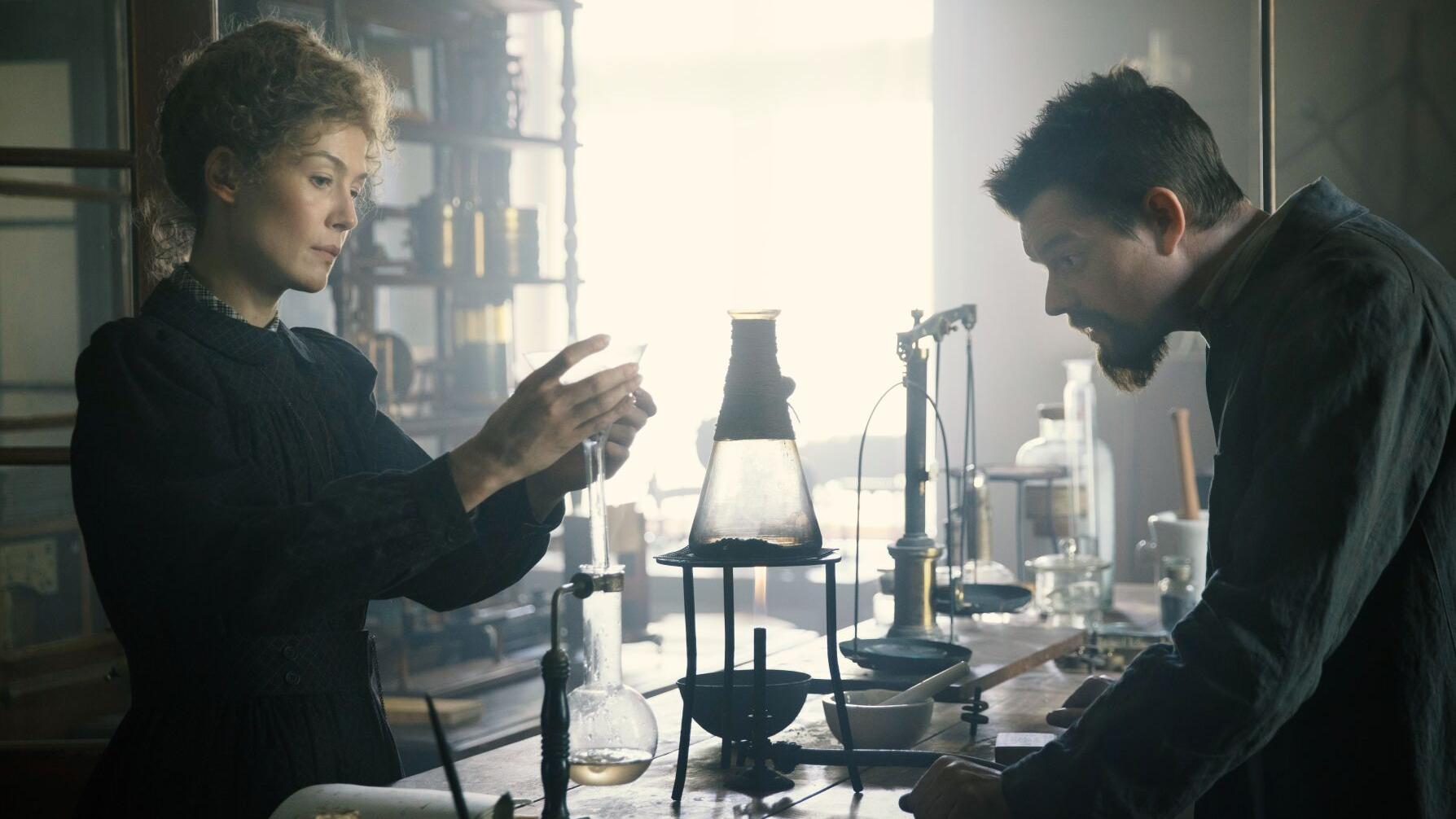One of the great scientists of the last 100 years was Marie Curie. An early example of a modern, renaissance woman, she had her yellow cake at ate it too, you know, as one does. A life that big and grand demands her story be told, over and over again. This 2020 version is a highlight reel more than anything, but for a scientist that important? It’ll do.
Rosamund Pike plays Marie Sklowdoska, a brilliant Polish scientist who gets her degree at the Sorbonne in Paris. After school, Marie struggled to continue her studies because of lack of funding and some run of the mill gender discrimination. Desperate, she partnered up with Pierre Curie (Sam Riley) scientifically, and eventually romantically. Together the pair were early researchers on radioactivity, even discovering a couple elements in the process, for which they were rewarded with Nobel Prizes…and unfortunately, radiation poisoning that shortened their lives.
Radioactive’s innovation into Marie Curie’s story is through a gimmick around deathbed “life flashing before your eyes.” That gives director Marjane Satrapi a blank slate of creative license to try all sorts of artistic flourish. The movie is most effective showing Marie’s trailblazing. There’s a lot of “First to…” in her Wikipedia page the movie’s all to happy to point out. In addition to her scientific successes outlined above (the first person, man or woman, to win 2 Nobel prizes), Madame Curie was also a social trailblazer, becoming the first female tenured professor at the Sorbonne, and helping use her radioactivity study to help treat soldiers on the battlefield during World War I. In addition, the movie does a serviceable job around Marie and Pierre’s romance, carried in large part by Pike’s ability to show how much Marie and Pierre were partners.
Radioactive’s insistence on almost deifying Marie Curie means that some of that artistic license should get suspended for exceeding the speed limit a time or two. Apparently, Marie also sees into a future she’s NOT a part of to see her research curing cancer and the atomic bombing of Hiroshima, because wouldn’t you know it, we need a scene to talk about the power of radioactivity to be used for good and evil. The movie also hammers home Madam Curie’s difficulties a tad too hard. I think Marie mentions she’s a woman in a field that doesn’t want her every 10 minutes or so, with a little Polish racism thrown in for good measure as well. While true, it tends to grind the story/plot to a halt while the same beats we heard before are repeated to a new person/group of people. After a while, the deathbed revelations feel like Radioactive tries to tell a story too large to fit into a life as grand as Marie Curie’s, kitchen sinking her life and almost sinking the movie more than a few times.
No, Radioactive is not an operatic thinkpiece on a larger than life pioneer. But as a high school movie? Radioactive succeeds, because you’ll leave the movie going “oh man, that’s a badass lady.” Because, simply put, Marie Curie is. C’est vrai. Vive Madame Curie! Cause a French teacher is definitely showing this film at some point.

